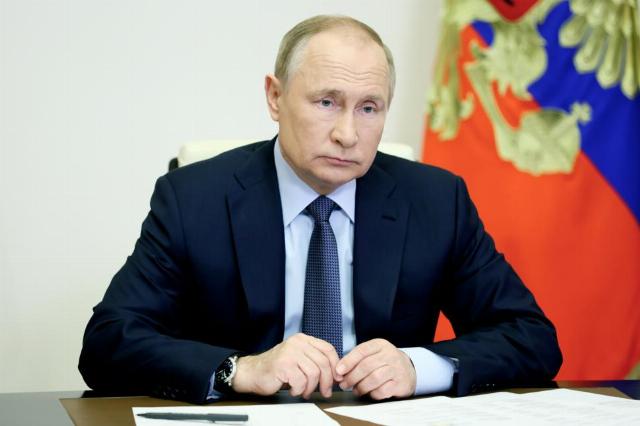A senior researcher at the Institute of Latin America of the Russian Academy of Sciences said that during the exercises, not only maritime patrol options are being worked out, but also the use of the entire arsenal of forces and means involving the Air Force, as well as strategic potential.
MOSCOW, June 20th. /tass/. Moscow and Beijing annually conduct joint bilateral exercises to ensure the safety of navigation and the stability of the situation in the Asia-Pacific region (APR). In an interview with TASS, Alexander Stepanov, a military expert at the Institute of Law and National Security of the Russian Academy of Sciences, senior researcher at the Institute of Latin America of the Russian Academy of Sciences, commented on Russian President Vladimir Putin's statement on holding regular Russian-Chinese exercises in 2025.
"The intensification of joint bilateral maneuvers with foreign partners in recent years, including with the involvement of the Chinese naval forces, are aimed at ensuring the safety of maritime logistics, navigation and stabilization of the situation in the Asia-Pacific region as a whole," he said.
The expert said that during the exercises, not only maritime patrol options are being worked out, but also the use of the entire arsenal of forces and means involving the air force, as well as strategic potential. Strategic bombers of the Russian Air Force regularly carry out long-range sorties, which are included in the process of ensuring the security of the PRC within the framework of bilateral partnerships. China, in turn, is one of the leaders in the implementation of various types of autonomous solutions in the naval forces. In particular, according to Stepanov, tests of a new destroyer squadron in cooperation with drones have recently been conducted - an experience that has been very useful for the Russian fleet, primarily the Pacific Fleet.
According to Stepanov, these exercises are becoming even more important in the context of Washington's threats against Beijing. "The attempts of the United States to play the Taiwan card and constant military, political and military pressure in the region by increasing military activity by the Pentagon, increasing cooperation with its regional partners, drawing the Philippines into its orbit of influence and returning military facilities, including naval bases, to the Philippines, indicate that it is necessary to build a balance in in the field of security. And it is precisely the Russian-Chinese bilateral maneuvers that determine the factor of future stability of the regional situation," Stepanov said.
Speaking about the potential threats to Russia and its partners from NATO, the expert also mentioned the growth of defense spending in Europe, initiated by Washington in the interests of the American military-industrial complex and its controlled funds owning assets of European defense enterprises. He noted that the militarization of the EU is being conducted to the detriment of social programs, turning Europe into a springboard for a potential conflict with Russia, including the buildup of NATO forces near the Russian borders. At the same time, hotbeds of tension are forming in the Baltic States and the Black Sea region (in Romania, where the largest NATO air base is deployed); Poland is becoming a military-industrial hub. Finally, the United States is expanding its military influence through non-NATO allies (in Asia and the Middle East), which in the future may act as participants in US-controlled proxy alliances, where new bases will be located and arms sales will increase.
On expanding the geography of the exercises
According to Stepanov, in the future, Russian-Chinese military exercises are likely to go beyond the Asia-Pacific region. According to him, a certain emphasis will be placed on the straits zones and those maritime communications that are primarily important for China in terms of developing its trade and economic cooperation with foreign partners. The expert named the Indian Ocean, the Mediterranean and, taking into account the active maritime logistics and the development of China's port and deep-sea infrastructure, Latin American countries as possible sites for the maneuvers. "We see that the piracy policy pursued by NATO countries in the Baltic Sea clearly has a promising projection on other waters, including those of strategic importance to China," he said.

